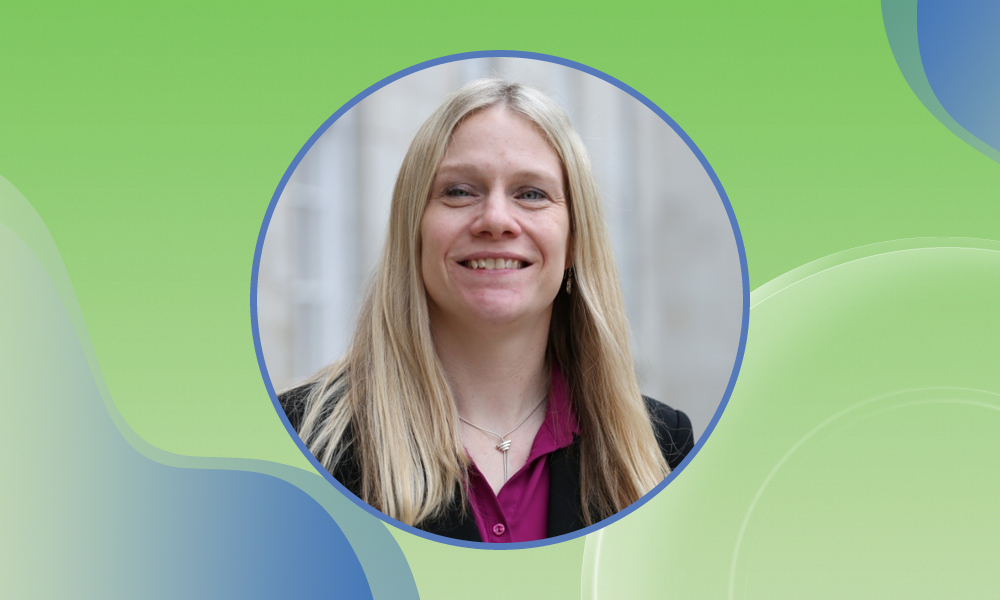
Break the bias – an interview with Louise Mullany
This year, the theme for International Women’s Day, celebrated on 8 March, is ‘Break the bias’. We caught up with Louise Mullany, Professor in Sociolinguistics at the University of Nottingham in the UK, to explore what bias in science looks like and how to address it.

Mullany specialises in investigations of gender and language in professional settings in global contexts. She also set up the global Language, Gender and Leadership Network, funded by the UK Government’s Arts and Humanities Research Council, connecting women leaders in Europe and Africa.
With colleagues at the University of Nottingham, Louise has done an in-depth amount of research on the language used in recruitment to enable diverse pools of candidates to be recruited, avoiding unconscious bias and exclusion. This has been funded by the UK’s Engineering and Physical Sciences Research Council. She has also worked with police forces, NGOs, and MPs on evaluating the language of misogyny as a hate crime.
Mullany is one of the speakers at EMBL’s International Women’s Day 2022 round table – Breaking biases and envisioning inclusion, taking place on 8 March 2022, at 12:30 CET. In the interview below, Mullany touches on some of the topics that will be discussed during the event.
What is bias?
Bias is a prejudice or a stereotype about an individual or a group. Bias can often be unconscious or unrecognised, meaning the person who has the bias is not aware of it.
It’s important to clarify that it’s impossible to completely eradicate bias and stereotypes, but what we can and must do is to be more aware of our biases and the effects they have on others. A good way to think about it is to first identify the bias, then work on addressing it by acting on the problem, so that bias can be eradicated in future.
In your experience, what are some of the biases that women face in science?
One of the most persistent biases is a “think scientist, think male” bias, especially when it comes to senior positions. When women occupy roles that are stereotypically associated with men, negative evaluation of their competence and abilities ensues and they are often derided and sexualised.
These common biases are linked to perceptions of individuals’ behaviours. Studies show that the boundaries for acceptable behaviour for women in the workplace are much more stringent than those for men. Between a male and a female boss leading in the same way, women are more negatively evaluated as being too assertive, often being called “bossy” or “unpleasant to work with”.
How can organisations help to address bias in science?
The first thing is to increase the visibility of the equality, diversity, and inclusion (EDI) initiatives, making these appointments as senior as possible, to integrate EDI into the organisational culture. The second step is to convince the organisation that EDI is not just political correctness or something that you are forced to do to comply with funding requirements or employment law. The message needs to be that EDI is beneficial for everybody because a diverse workforce brings new ideas, backgrounds, and experiences, and this benefits organisations economically, socially, and culturally.
But it’s not just about bringing in people from diverse backgrounds – it’s also about creating an environment where they feel properly valued and their contributions are appreciated and rewarded fairly.
All of this takes a lot of time and commitment; it’s not something that will change overnight. It requires sustained and consistent attitude shifts, changes in workplace culture, and the bringing in of organisational processes to ensure that the changes are embedded long-term in organisations.
How can individuals help address bias in science?
It’s important to call out bias when you see it. People at senior levels have to lead by example, by being aware of bias and calling it out. This will empower others at more junior levels to do so, too. For this to work, staff have to feel confident and organisations need to have robust and reliable reporting and supporting tools, in addition to ensuring that people using these tools know that their concerns are taken seriously.
What kind of world do you imagine for your children in terms of gender parity?
My ideal would be for my daughter to be able to grow up in a world where she isn’t afraid to walk home alone at night and where her gender doesn’t mean she gets paid less than a man doing exactly the same job. And I’d like my son to not feel the pressures of toxic masculinity growing up.
My longer-term wish is for EDI to write itself out of existence and become business as usual. I think it’s important to think about what world we want our next generation to inherit, and start acting on it now, for the positive benefit to us all.


